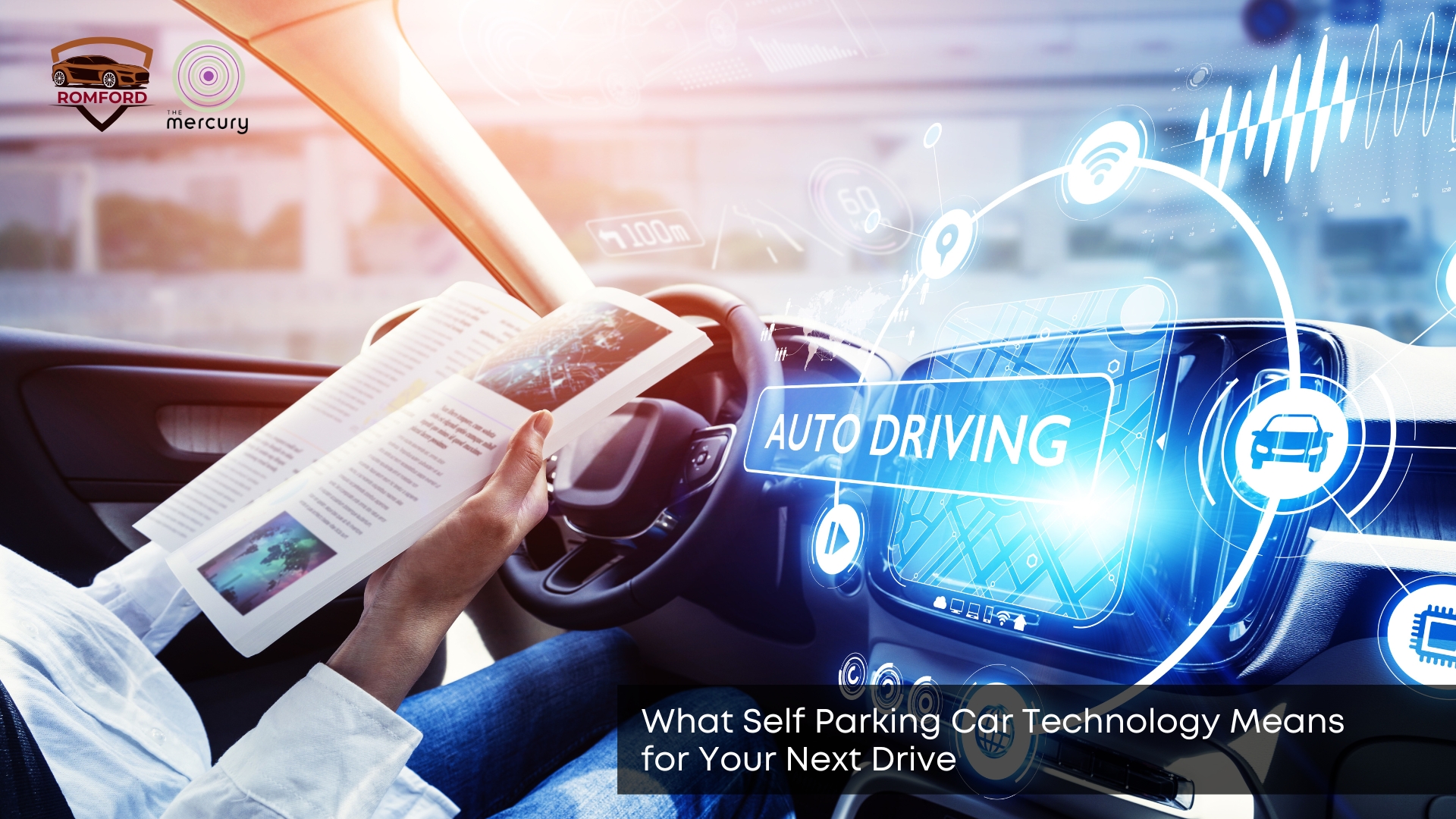Self-parking technology is transforming the way UK drivers approach tight spaces and stressful city driving. Whether you’re navigating a busy supermarket car park or a narrow street in central London, knowing your car can handle the parking gives you one less thing to worry about. This technology utilises sensors, steering control, and sometimes full automation to simplify everyday driving. For many, it’s no longer just a luxury feature, it’s quickly becoming an expectation. But how much do we understand about how it works and what it can do?
What Is Self Parking Car Technology?
Self-parking car technology is a system that helps your vehicle park itself with little or no input from you. It utilises sensors, cameras, and steering automation to guide the car into a space safely. Some systems need you to manage the pedals, while more advanced versions take full control. This technology is designed to assist with challenging areas, particularly in tight urban parking spaces. And once you’ve seen how smoothly it works, you might wonder how you ever managed to park without it, which brings us to a key concern for many first-time users.
Can You Rest a Car to Park Itself?
Yes, self-parking systems are built with safety and accuracy in mind. They use real-time data to detect the space size, nearby cars, and obstacles. Most systems alert you if the space isn’t suitable or if something moves unexpectedly. While it’s wise to stay alert and ready to brake, the technology has proved reliable in day-to-day situations. Parking confidence increases once you’ve seen the system in action a few times. That trust becomes even more valuable when you realise just how often you need this help in daily driving.
Where Does This Technology Help the Most?
Self-parking is most useful in tight parking spaces, parallel parking spots, and narrow residential streets. It shines in places where precision is hard to manage by eye. Multistorey car parks, airport drop-offs, and busy shopping centres are key areas where drivers benefit. Even experienced drivers sometimes misjudge small gaps, and this tech fills in the difference. As more people enjoy that ease, many start to see it as a must-have rather than a nice extra.
Is Self-Parking Now a Must-Have Feature?
Yes, for many modern drivers, self-parking is fast becoming an expected feature. New models often include it as standard or offer it as part of a tech pack. As car buyers grow used to smarter assistance, older models without the feature may start to feel outdated. It’s especially attractive to those who regularly park in cities or feel anxious about tight spaces. With growing interest, it is helpful to understand how the technology delivers on its promises.
How Does a Self-Parking System Work?
A self-parking system utilises a combination of ultrasonic sensors, radar, and cameras to scan for suitable parking spaces. Once found, it takes over the steering while guiding you to control the gear and pedals, or handles everything in fully automatic versions. On-screen prompts and audible beeps guide the user through the process from start to finish. Some systems also let you park using a smartphone app from outside the car. However, even the most sophisticated systems have their limitations, and it’s essential to understand what they are. That’s why it helps to explore Romford car park options for all vehicle types to see which spaces suit your tech-enabled car best.
Are There Any Drawbacks to Self-Parking?
Yes, there are a few limitations to consider. Not all systems can park in every kind of space, especially if the markings are faded or angles are awkward. Sensors can be blocked by dirt, weather, or nearby objects, which may reduce accuracy. Drivers also need time to learn how each system works and when manual control is still the better option. It’s not a perfect solution in every situation, but it’s a powerful tool in most. That balance between tech and driver input plays a key role in shaping everyday use.
What Does This Mean for Your Everyday Driving?
For everyday drivers, self-parking adds ease, saves time, and reduces stress. It makes quick stops less daunting and long commutes more manageable. You can focus more on finding a spot and less on worrying about angles and space. To get the most out of this, it helps to find a suitable car park in Romford that matches the tech your vehicle uses. Over time, it even helps improve your parking awareness and habits. As this shift in mindset continues, it’s worth considering how to maximise the benefits of this technology now and in the future.
Making Parking Easier One Tap at a Time
Self-parking technology brings a new level of comfort to parking your car in any environment. It’s not just about fancy features, but about giving drivers more confidence in everyday spaces. As more UK roads and car parks adopt automation, understanding how to use and trust these systems is a smart move. Whether you’re a city driver or a weekend shopper, this tech can make every journey a bit more relaxed. You may even want to compare car park spaces with local storage units if you’re thinking longer term. And when parking feels simple, the rest of your drive follows naturally.


Leave a Reply